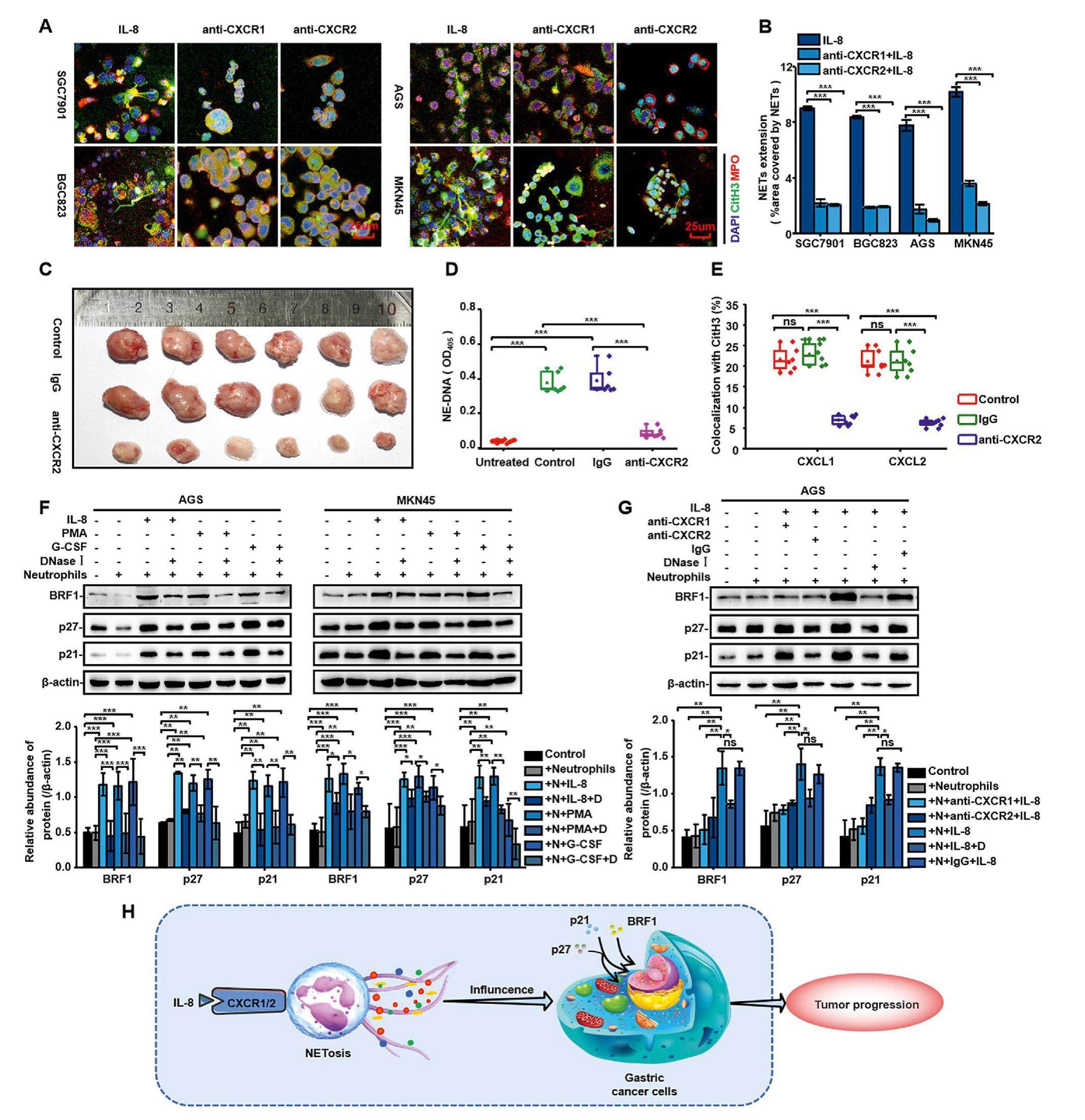
Neutrophil extracellular traps induced by interleukin 8 via CXCR1/2 promote the progression of gastric carcinoma through transcription factor IIB-related factor 1 and cyclin


Neutrophils constitute a significant portion of the immune cells present within the tumor microenvironment. Evidence generated by our group has confirmed neutrophils to be an adverse independent prognostic factor affecting the disease-free survival of gastric carcinoma (GC) patients. Neutrophil extracellular traps (NETs), protein-covered DNA webs that interact with tumor cells in the tumor microenvironment, were detected in GC tissues and found to clinically associated with disease progression in our previous study. NETosis could be mediated by a series of agonists, such as interleukin 8 (IL-8). However, the mechanism of IL-8 in the progression of GC occurs via NETs remains unclear. In this study, we identified that IL-8-mediated NETosis can promote the proliferation, migration, and invasion of GC cells in vitro, which can be abrogated by NET degradation through deoxyribonuclease I (DNase I) or IL-8 suppression through neutralizing antibodies. Disruption of NETs by DNase I or blockade of the IL-8-CXC chemokine receptor 2 (CXCR2) axis could result in growth retardation in mouse models. We also confirmed that NETs may influence the biological behavior of GC cells by up-regulating the expression of transcription factor IIB-related factor 1 (BRF1) and cyclin p21/p27.
